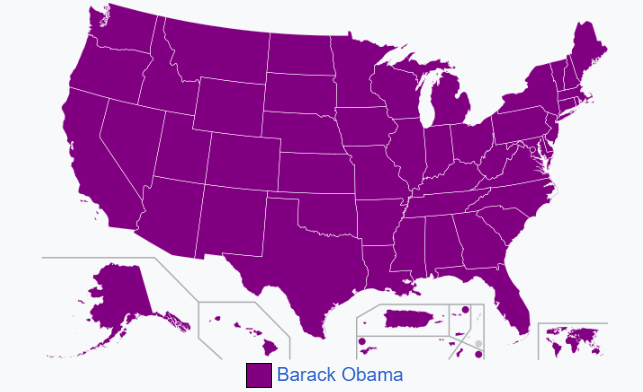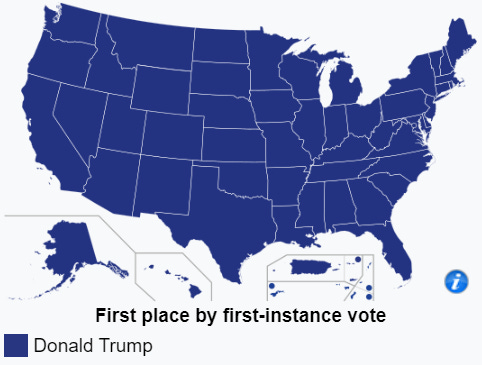Some Thoughts On Joe Biden Dropping Out And The Conspiratorial Billionaire Knucklehead Who Is Driving Me Crazy
I’ve never seen a more peaceful, democratic ‘coup’ in my life
Joe Biden is exiting the 2024 race for president. I’m sure you’re just learning about this from my newsletter.
I promise this will be my last post about the presidential election for a while. I know it’s not an area of expertise for me, and I have several other posts in progress related to other subjects, but yesterday was too big a deal for me not to get some of my thoughts out. (I’m also not going to get in the habit of posting twice in the same day, but this seemed like a worthwhile exception to that rule.)
Most of those thoughts have to do with the absolutely gonzo conspiracy theorizing occurring on the right at the moment. Some of it is coming from genuinely addled people, while some of it is coming from opportunists who are arguing in profound bad faith.
The high-profile Trump supporters currently recovering on fainting couches are deeply upset and alarmed about Biden’s decision to drop out for two reasons. First, they’re quite concerned that the Democratic primary process was subverted, and they are viewing this as an attack on the small-d democratic norms. Second, and relatedly, they’re convinced something about his withdrawal is suspicious — it “wreaks [sic] of a coup,” as major Trump donor and promoter David Sacks, who just spoke at the Republican National Convention, put it.1
Before responding to these two points, I should just say that I think if you want to be taken seriously as someone who cares deeply about democracy continuing to function in a fair way — like, if that’s a core issue for you — you might not want to publicly support and (in some cases) donate many tens of millions of dollars to Donald Trump. Anyone who reads this newsletter knows that I don’t see it as my role to tell people who to vote for, and I try to avoid focusing on my own political preferences in most instances, but, like, come on. “I support Donald Trump” and “I am super mad some Democratic primary voters may have gotten a raw deal” are the matter and antimatter of political opinions.
Anyway, the claims of disenfranchisement, in addition to being bad faith, are premature and don’t map neatly onto the reality of the primary process. The Democrats did not have a truly open primary this year, because the party’s leaders thought it was best to rally around Biden. This was, in retrospect, exceptionally foolish, but it isn’t remotely unusual; the party of a first-term president does this all the time. To take the last two examples we have, in 2012, the Democrats didn’t hold a competitive primary, leading to this map. . .
. . . and in 2016, the Republicans shut down some of their primaries to prevent even long-shot opponents of Trump from gaining the slightest foothold, and, they claimed, to save money.
As ABC News reported in September of 2019:
Republican officials in South Carolina and Nevada voted Saturday to cancel their nominating contests in 2020, prompting President Donald Trump's long-shot primary opponents to rail against the stunning but not unprecedented move.
The votes, which come as Kansas and Arizona are also finalizing plans to forgo their GOP presidential primaries and caucuses, follows a broad effort by the Republican National Committee to give “undivided support” to the president — even passing an unprecedented loyalty pledge earlier this year before he’s the party’s official nominee.
“With no legitimate primary challenger and President Trump’s record of results, the decision was made to save South Carolina taxpayers over $1.2 million and forgo an unnecessary primary,” Drew McKissick, the chairman of the South Carolina GOP, said in a statement. “President Trump and his administration have delivered for South Carolinians, and we look forward to ensuring that Republican candidates up and down the ballot are elected in 2020.”
Here’s the resulting map, and to be clear it would have looked this way whether or not certain GOP states had made the aforementioned changes:
So there is nothing remotely unusual about an incumbent party clearing the way for their first-term president. To be sure, the primary system remains exceptionally weird and in many ways corrupt and anti-democratic, but none of that is new.
***
So what happens when an incumbent drops out of the race after securing enough delegates to win the primary, but before it is made official at the national convention? That is something the party needs to figure out, which the Dems are scrambling to do. Nothing about this is unusual, either: oftentimes parties need to figure out these sorts of problems on the fly, and doing so involves a complex calculations of trade-offs and risks and benefits. For example, if the system you choose stacks the deck toward Kamala Harris, she may gain certain advantages in terms of fundraising and “momentum” (if you believe in that), but that also gives the GOP more time to attack her, shuts out potential alternatives who could do better, and so on.
Regarding those conservative complaints, though, it’s really important to understand the difference between primary and general elections. Whether you have a chance to vote for president in the general election, and whether your vote is counted, is one of the most important questions you can ask about the United States’ continued functioning as a democracy. That’s because if some evil cabal takes over or manipulates the voting system, it might lock us into a long-term dictatorship of sorts.
None of this logic applies to the Democrats’ or Republicans’ primary processes. Does anyone think these processes are truly democratic in the same sense as a general election is supposed to be? They are clearly not. At the most basic level, the sequence of primaries gives weird power to. . . Iowa and New Hampshire? And caucuses? Don’t even get me started on caucuses. The whole primary process is weird and outdated and hamstrung by historical relics. A single-day national popular-vote primary would make much, much more sense, but alas, that is not going to happen.
Keep reading with a 7-day free trial
Subscribe to Singal-Minded to keep reading this post and get 7 days of free access to the full post archives.




